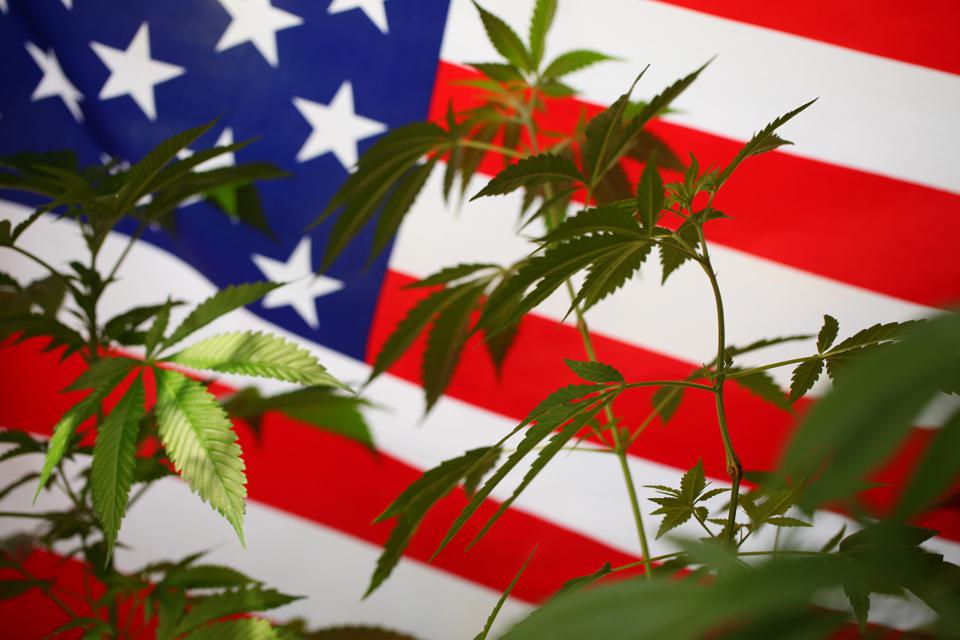Image via
Federal cannabis legalization could bring the US more than $8 billion in additional tax revenue over the next decade, according to a new report by the Congressional Budget Office (CBO).
The CBO, a nonpartisan government office that estimates the economic impact of bills proposed in Congress, released its budget estimate for the Marijuana Opportunity, Reinvestment and Expungement (MORE) Act last week. This bill, which is currently being debated in the House of Representatives, would remove cannabis from the Controlled Substances Act, effectively allowing individual states to legalize or prohibit weed as they see fit.
The MORE Act “would federally decriminalize cannabis (marijuana), expunge the records of people convicted of federal cannabis offenses, and require resentencing of some federal prisoners,” the report explains. The CBO predicts that if the bill became law, it would increase federal revenue “by about $8.1 billion over the 2022-2031 period by creating an occupational tax on cannabis producers and warehouse operators and by increasing compliance with business income taxes.”
The bill would also create an excise tax on all state-legal cannabis sales and direct this revenue into a new Opportunity Trust Fund. Over the next decade, the CBO estimates that the fund would collect about $7.8 billion of revenue from legal weed sales. Around $3.4 billion of this income would go to the Department of Justice, who would use it to provide job training, legal aid, and other services to people most heavily impacted by the War on Drugs. Another $1.4 billion would go to the Small Business Administration to help states and localities grant loans to small weed businesses.
The expungement provisions of the MORE Act would also have a massive impact on the country’s overcrowded prisons. Thousands of inmates arrested for nonviolent weed crimes would be released from prison early, and federal decriminalization would prevent more people from getting arrested for cannabis-related crimes in the future. In total, the CBO estimates that the bill would reduce time served by current and future inmates by 37,000 person-years.
This reduction in the prison population would amount to significant savings for the federal Bureau of Prisons. The CBO estimates that federal decriminalization would save the bureau about $800 million between 2022 and 2031. However, the feds would be required to actually provide these newly-released prisoners with the federal benefits that they are currently denied, which would cost the government an estimated $344 million over the next decade.
The House already approved the MORE Act in 2020, and they are expected to approve it again this year. But the bill’s chances of moving past the House seem slim. Senate Majority Leader Chuck Schumer is likely to block the bill from coming up for debate in his chamber of Congress, as he is advocating for his own federal legalization bill. And even if either of these bills does pass, President Biden has suggested that he will veto them – even though a solid majority of American voters want to see federal cannabis prohibition come to a final end.











